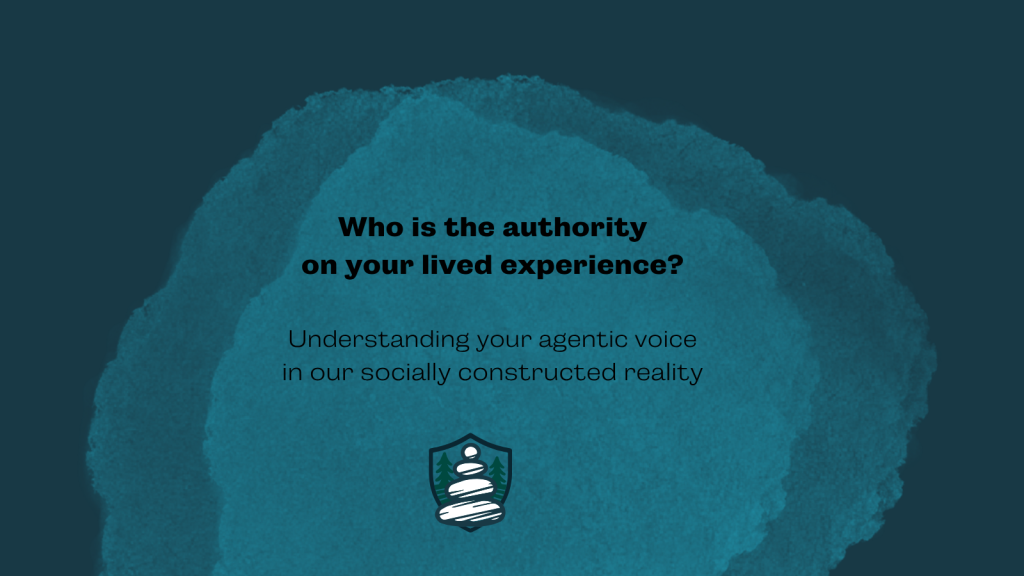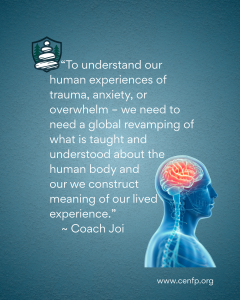
The Socially Constructed Meaning of Experience and the Authors of Meaning
- #abuse, #abusivemanipulationoftherapy, #agency #autonomy #rightstoexpressmeaning, #cenfp, #clinicalresponsibility, #coercivecontrol, #etymologyofsorry, #meaningisnotinherentinbehavior, #meaningisnottheory, #meaningissociallyconstructed, #misalignedmeaningleadstopooroutcomes, #regretisacharacterattribute, #shame #sorryisntshaming, #shameisasocialconstruct, #sociallyconstructedreality, #sorrowandregretareprosocialvalues, #targetedpartnerabuseç, #theories, #voicesofauthority, #weaponizingtherapy
- #abuse, #abusivemanipulationoftherapy, #agency #autonomy #rightstoexpressmeaning, #cenfp, #clinicalresponsibility, #coercivecontrol, #etymologyofsorry, #meaningisnotinherentinbehavior, #meaningisnottheory, #meaningissociallyconstructed, #misalignedmeaningleadstopooroutcomes, #regretisacharacterattribute, #shame #sorryisntshaming, #shameisasocialconstruct, #sociallyconstructedreality, #sorrowandregretareprosocialvalues, #targetedpartnerabuseç, #theories, #voicesofauthority, #weaponizingtherapy
Asking the question, ‘Why are we giving our agency to these systems?’ Part I
In last week’s blog, we briefly discussed the topic of socially constructed meaning. In this post, we’ll broaden that topic further, in the hopes that we can bring a better understanding to the role of clinical care, particularly for those who live with the dreadful experience of ‘Targeted Partner Abuse©.’
From Last Week’s Post
Last week, the following comment was made,
“It is people who promote false ideas. It is people who make up society. Society is a unit of measure. When using the term “socially constructed,” we must understand that the responsibility for passing along false ideas is on the people within the system, not the system itself” (Coach Joi).
The beliefs we form and the ideas we share about our human experiences are socially constructed. They are shaped and built by the people around us in their various roles, professional practices, and through our common dialogues with one another. This even means the conclusions drawn from psychological studies and papers written to explain human behavior and the human mind.
Who are the Ever-Present-All-Knowing “They?”
In contemporary society, there exists a collective of individuals, institutions, and systems widely regarded as the foundation of legitimate knowledge. Beyond this, these entities are commonly accepted as authoritative sources whose claims we accept as fact.
What are we doing by taking these individuals, groups, systems, and institutions’ position on matters that are generalized to the small group selected for study and then populated throughout all of humanity as fact?
The answer is simple from our position at Center for Peace – we are giving up our agency to a body of individuals or to a system to tell us what our own lived experiences mean. We give up our own power when we do this.
As victims of abuse, we know what it feels like to give up our power. We know what it is like when the perpetrator of abuse gaslights us, promotes his agenda through a smear campaign on our character. We also know viscerally the horror of sitting in counseling, observing the man abusing us, colluding with the therapist to view him as the victim, and us as the villain.
For years, this has been occurring in the social, behavioral, and psychological sciences at all levels.
Don’t Shoot the Messenger
Before you hit delete or start to formulate a well-crafted rebuttal, allow me a moment to lay out the position further with the following points.
First, we need the sciences to provide knowledge and resources to help us live better lives, take care of ourselves, others, and the land we all share.
Secondly, education is the process of learning. We have learned considerably over the decades. But there is still much that is a work in progress. Likewise, there are many studies or theories that have been proven false. Many of these falsehoods and myths are still promoted as fact. (Fun FYI – the term ‘fact’ is not used by scientists as not much can be called such.)
My third point is that there is much we have yet to agree upon and explain. For example, what is the difference between the brain, the mind, and our consciousness? There are many questions in this genre alone that science will not touch. This leads us to make guesses, stabbing in the dark, and sharing those guesses under the guise of our various positions of authority – power messengers confirm social belief, often with little research to secure corroborated evidence.
An Example
An influencer we follow on social media stated in a post that he would not say sorry to people, explaining that he views this as part of a “shame system.” If you have been influenced by the shame culture rhetoric, you might agree with this position.
Let’s unpack this with the following counter-arguments.
The simple instruction for children to be socially aware of themselves in relation to others is found in part in the practice of saying sorry when a wrong is committed. Children need to practice this over their developmental period to learn to understand this as a pro-social behavior. When we care about others, we should offer apologies when an offense is committed. This does NOT mean that the one causing harm is inherently bad (which is the implication of the so-called ‘shame system’), rather it means the one wounding the other has a value of care and regard for fellow human beings.
Failure to instill this value in our little humans may result in grown humans who are self-centered rather than other-focused and might more often blame the one who says, “ouch” as the villain.
(To avoid getting too far afield, we’ll leave the topic of parenting in past generations for another time. Suffice it to say, it remains a reality that some bring children into the world without fully embracing the responsibilities that come with it.)
As wives of men who target abuse, we have experienced countless refusals by them to own their behavior and properly apologize for the deep harm these men cause. Writing about this could become a post of its own. For simplicity, some of the harm we’ve experienced may be in outright refusal to say sorry, or the many lame apologies to get out of the doghouse. Not to mention all the gaslighting that twists the story and blames the victim.
Thinking that saying sorry might shame them is another type of victim-blaming. If these men have committed shameful acts, the results of that shame are correlated to the act and their choices. The shaming does not come from the one looking for the apology. The behavior of infidelity or lying has its own meaning, due to the social ills of these behaviors. The behavior is wrong and should be repaired to restore the dignity of both parties.
Saying Sorry is not about Shame, it’s about Ownership and Character
Human beings with high character say sorry, not because they are bad when they harm another person, but because it is bad not to offer this kindness when an error is made and harm is caused. There is nothing in the origins and etymology of the word ‘sorry’ that suggests shame.
Etymology of “Sorry:” The word “sorry” has Middle English roots in the word sori, derived from the Old English words “distressed, grieved, full of sorrow.” The word has common roots with the words “sore” and “painful”. The shift from the “a” sound to the “o” sound in the spelling of “sorry” is attributed to the influence of the word “sorrow.”
Somewhere along the way, some group or assigned authority suggested that people think they are bad when they say sorry – and that wave of indoctrination began. It’s all over the place now. The outcome, some people do not hold themselves accountable when wrongs are committed, and some people are left hurting because acknowledgment and kindness are not offered as that small token of regret.
The Outcome of Just One Socially Agreed-upon Meaning
From this small example, we can see that when we misalign and erroneously make meaning from a small practice, we create unplanned outcomes that result in worse experiences than the original practice.
Meaning is not Inherent in Behavioral Descriptions
As we expressed last week, “
When troubling events occur in our lives, we seek answers from authorities of religion, science, and psychology to help us make sense of why people do bad things. The truth is that these sources cannot explain the whys of human behavior. These sources are full of the guesses or biases of the people in these fields of study” (Coach Joi).
Meaning is not inherent in behavior or in our individual or collective experiences. We choose the assignment of meaning. Meaning is the way we see and agree on our shared social reality. As with many things in our social world, meaning is fluid and evolving as people change from generation to generation.
In recent years, the meaning of narcissism has been boldly assigned to men who abuse their intimate partners. The reality is, if the many men engaging in coercive control, ‘Targeted Partner Abuse©,’ intimate partner abuse, or any of the terms we use for this behavior, were indeed narcissistic, we would be experiencing exponentially worse outcomes from this behavior. Talking about the person abusing us, or the ways they abuse online as much as we do, would be dangerous to us. The disturbed individuals who are narcissists have a particular type of pathology that may resemble, but is in no way as severe or dangerous.
Our Agency and Autonomy are Grounded in Our Right to Express Our Own Experience, even if Different from the So-Called Theories Online
As a final point for this post, we suggest that while much of what we read online, learn in groups, or read in books feels or seems accurate to us in describing what we are attempting to make sense of, we do not all share the exact meaning.
For example, many people have different meanings for betrayal. As a result, some take immediate action to separate from the unfaithful partner. Others stay and try to work through the betrayal. It does not mean that the latter forgives more or better than the former. It is merely the different options people choose.
Studies on trauma show that cultural meaning can influence the way we describe meaning to these events. In one culture, sexual assault of a male perpetrator on a female victim has a non-traumatic meaning assignment than it does in our Western cultural assessments.
In a lighter example, money has a socially constructed meaning. The value and the instruments themselves have no inherent meaning outside of what we’ve come to agree to as a people. No intrinsic value exists in a dollar bill that a grain of rice held in other times and cultures.
As human beings, we make social-relational agreements with one another, whether this is in the lines of demarcation of cities and countries or in the ideal of fidelity in marriage. Each human being has the option to align with social meaning constructions, such as what marriage means, while others, such as the value of a ten-dollar bill, may not have the flexibility to it that we might all like it to have.
When it comes to how you explain your experience as an abused wife or even how the perpetrating abuser might explain or justify his actions, it is your right to state that meaning. Regardless of studies, social media posts, or even theories purported by those who are experts in their stated field. Most of us are aware of the egregious narrative of Freud, who promoted a theory of female hysteria that morphed into many outrageous and degrading positions about women over the years.
It is a part of our human experience to want to understand what happened to us and what it may have meant. The meaning belongs to the one who went through the experience. At times, we may turn to a professional for help in processing the experience. We need to be careful, as many of the ideas used in counseling are faulty or based on patently false ideologies. No therapist should tell a client what something means to them. Meaning can be parsed out together; however, the final voice belongs to the client whose experience is theirs to make sense of.

Guard well your story and the way you describe your experiences. If you are curious about the theories and ideas that are no longer valid, schedule a session at Center for Peace. We would be happy to help you process what is accurate science and what might be helpful for your story.


